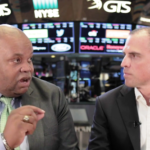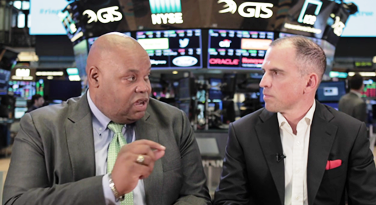Breaking News: GTS Securities, the NYSE’s biggest specialist firm aka Designated Market Maker (“DMM”) and one of the electronic market-making world’s biggest players in the FX and rates markets is now aiming to become the ETF industry’s biggest market-maker the old-fashioned way, by buying into the space. After several months of speculation and rumors of a pending deal, GTS formally announced today they have acquired the entire team of ETF brokers and traders from Cantor Fitzgerald. According to the press release issued by GTS, the deal to acquire Cantor’s ETF team of approximately 35 ETF sales traders led by ETF industry veteran Reginald Browne is expected to close in February 2019. Terms of the transaction were not disclosed.

GTS was established by former NY Merc floor traders Ari Rubenstein and David Lieberman, who looked to Amit Livnat, a top-of-class graduate from the world famous Israel Institute of Technology to serve as the firm’s resident tech wonk. Of the three, Rubenstein is the camera-facing thought-leader, who first cut his teeth in the trading business as a runner on the floor of the New York Mercantile Exchange and later became a floor trader on the New York Cotton Exchange. Aligning with fellow floor trader David Lieberman and Livnat, GTS was first positioned as a quantitative prop trading firm that leveraged in-house trading technology and home-grown algorithms to peel incremental profits by executing tens of thousands of transactions per day across US equities, rates and FX markets. GTS levered its high-frequency trading domain expertise and morphed into its current role as a global trading powerhouse once the firm took control of the NYSE’s biggest specialist firm operated by a unit of Barclays Bank.
“For the first time on a scale never seen before, the most sophisticated Wall Street technology is being deployed for mainstream investors, be they institutional or retail,” said Ari Rubenstein, CEO and co-founder of GTS. “Investors around the world can now leverage the very best in machine learning, artificial intelligence and execution technology to help them save money whenever they trade and invest. This is an unprecedented opportunity for investors that unites unrivaled innovation with pioneering client service – while enhancing the capital raising opportunities for listed companies.”Stacey Cunningham, president of the New York Stock Exchange said, “The NYSE and our partners embody the synthesis of technology and human judgment, leading to the best possible outcome for investors and issuers.”
If you’ve got a hot insider tip, a bright idea, or if you’d like to get visibility for your brand through MarketsMuse via subliminal content marketing, advertorial, blatant shout-out, spotlight article, news release etc., please reach out to our Senior Editor via cmo@marketsmuse.com.
For the full press release, click here

